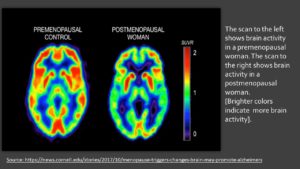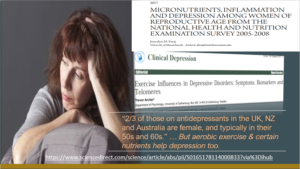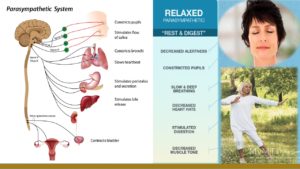I wonder how you are using your New Year break? (that’s if you get one!). Are you resting from the incredibly stressful year that you’ve just experienced, or are you still rushing around and/or because you are working from home, you are still on your computer or taking your Zoom meetings in between everything else you are doing?
If this sounds familiar, then I want you to consider making time to rest. Your changing brain in menopause needs it, [as do your muscles if you’ve been doing a lot of exercise this year].
We often don’t think about the need for our body to rest do we? That is until we are troubled by menopause symptoms that are problematised as ‘normal’ – you know what I mean – anxiety, depression, brain-fog and insomnia. But have you ever thought about how your brain changes as you move through your menopause transition and how much energy it is using? No, nor did I. This was never mentioned when I rocked up (again) to my Doctor to explain that I wasn’t sleeping, that my weight had increased and that I was experiencing increasing anxiety.
But for the average adult in a resting state, the brain consumes about 20-25 percent of the body’s energy. “The brain’s primary function — processing and transmitting information through electrical signals — is very, very expensive in terms of energy use” says Mark Richardson, (2019). “Your brain never shuts off” he says in a report called ‘How much energy does the brain use?’. No surprises there for mid-life women who have had so much going on this year. Even when you are sleeping your brain never shuts off. It consumes roughly as much energy as during the day, but the thing we have to remember is that our brain is changing as we move into post-menopause – our synapses don’t function as rapidly as they used to as your nervous system loses the role of oestrogen. I talk about this in my 12 week programmes when women are struggling to deal with their insomnia. If you have been awake night after night and worried about all the things that are going on in your life, then please be aware that you need to work on sleeping all night and resting when you can. It’s so important for your cardiac health, brain health and of course your weight, hot flushes and your anxiety.

This is why the first module in the MyMT™ programme (ON SALE NOW) has nothing to do with exercise or dieting, it’s all to do with you re-discovering how to sleep all night again. With 1 in 3 women in the United Kingdom, Australia and New Zealand, ending up on anti-depressants in menopause for their anxiety, it’s important to know that resting the brain and body is also important for managing this prevalent symptom that has become a hallmark of our menopause transition.

In 2009, the National Sleep Foundation made the case for sleep as the third piece of the puzzle for sustaining mental and physical health and well-being, along with exercise and nutrition. Whilst this message has been picked up and carried throughout the media, school curriculums, and sleep campaigns so that now most people consider all three as key factors affecting health and well-being, Lamp, Cook et al (2019) make the case that along with exercise, nutrition, and sleep there is a fourth puzzle piece — waking rest. Most exercise physiologists understand that rest and recovery is an important component of the adaptation to exercise training, it’s good to hear that, with many of us always being in ‘go-mode’ living in our fast-paced society, resting is getting a long overdue mention as well. I’m sure many mid-life women don’t factor this into their working week. So, over the New Year period, I would like to remind you! Human studies have shown that the same neuro-physiological rhythms found in sleep are present during wakeful rest.
How do we ‘rest’ with all the worry, concern and constant distractions going on in our lives?
The essence of rest is emerging as a new discipline in the health sciences as rest is increasingly recognised as a health-related phenomenon. The essence of rest is being in harmony in motivation, feeling, and action and is compared with non-rest, which is being in disharmony in motivation, feeling, and action (Asp, 2015). And in one of the largest studies conducted throughout the United Kingdom and Europe, whereby 18,000 people took part in new ‘rest’ research, Claudia Hammond (2020) shares that rest is more complex than sleep because there are so many different ways of ‘resting’. Topping the list of ‘most-favoured restful activities’ is reading. I wonder if you got a good book for Christmas. I’m currently getting acquainted with the life of Dolly Parton. I recommend it for you too.
There are other things that we can do, other than read a book or watch a movie (yes this rates well in rest-research as well). And one of the strategies is to walk or do some low-intensity aerobic exercise. I talked about how important this is for managing your menopause-related depression, brain-fog and anxiety HERE. Have a read when you have time.
Finding time to rest is also important for so much more than just improving brain health though. It’s also important to help slow down our vagus nerve stimulation. Your vagus nerve is the second largest nerve in the body and if you are always in ‘go-mode’, then this powerful nerve stays activated. Especially if you are an exerciser or working hard in a physical job – nurses, please take note! Here’s the thing. Your vagus nerve needs a ‘rest’ as well. When you rest, you help your digestion. Those of you with any gut health concerns such as IBS which has arrived in menopause, then please look at my GUT HEALTH module which is available as a stand-alone module or it’s in the 12 week programmes. I talk about your vagus nerve in this important module because our gut-health is changing as it ages too.

RECHARGE, REASSESS, REFOCUS AND RENEW YOUR HEALTH, ENERGY AND MOTIVATION FOR WHAT YOU WANT TO ACHIEVE IN 2021.
2020 has been a busy and challenging year for all of us, so I hope that you can enjoy the festive season where-ever you are in the world. I have so many women who join me from around the globe and whilst we all live in far-flung places, we are all connected through menopause or post- – I love that! No matter where you live in the world, you can work with me – it would be my privilege to help you to feel like your old self again. Knowledge is truly power when it comes to our mid-life menopause transition and it’s my passion to position menopause symptom management in specific scientifically-evidenced lifestyle change strategies. For too long, managing our menopause symptoms and our weight gain has been positioned in endless diets, exhausting exercise and various supplements and medications, but it doesn’t have to be like this as numerous women on the MyMT™ programmes discover.
Don’t forget that my Transform Me weight loss 12 week online programme is now ON SALE with NZ$100 off the cost making it NZ$199 and not $399. You can start this anytime from now to the end of January, so if you have been struggling this year, then read about it HERE. The promo code to access your discount is simply JANUARY21 – No matter where you live in the world and whatever you’ve got going on in your life, it would be my privilege to have you join me.
“I hope that you have a wonderful, relaxing New Year. Thank you for being part of the MyMT™ community. I love writing blogs for you and if you have time over the holiday season break, then there are many more on the My Menopause Transformation website. Sending you aroha/ love from Aotearoa/ New Zealand. My weekly newsletters and Wednesday briefings will continue over the festive season period, so please put time aside to read these when you can. If you are confused about your symptoms in menopause, I would love you to learn what all women in their 50’s and older should know.”
Dr Wendy Sweet, PhD/ MyMT™ Founder and Women’s Healthy Ageing Lifestyle Researcher.
References:
Asp, M. (2015). Rest: A Health-Related Phenomenon and Concept in Caring Science. Glob Qual Nurs Res. 2:1- 8.
Hammond, C. (2020). The Art of Rest. Canongate Books Ltd, Edinburgh.
Lamp, A., Cook, M., Soriano Smith, R. & Belenky, G. (2019). Exercise, nutrition, sleep, and waking rest?, Sleep, Volume 42, Issue 10, zsz138,
Richardson, M. (2019). How much energy does the brain use? www.brainfacts.org


